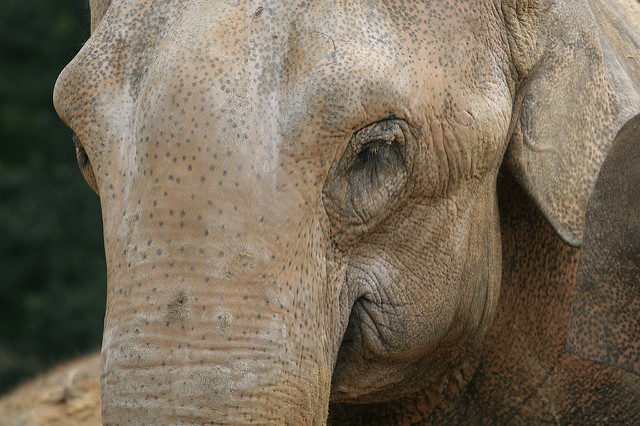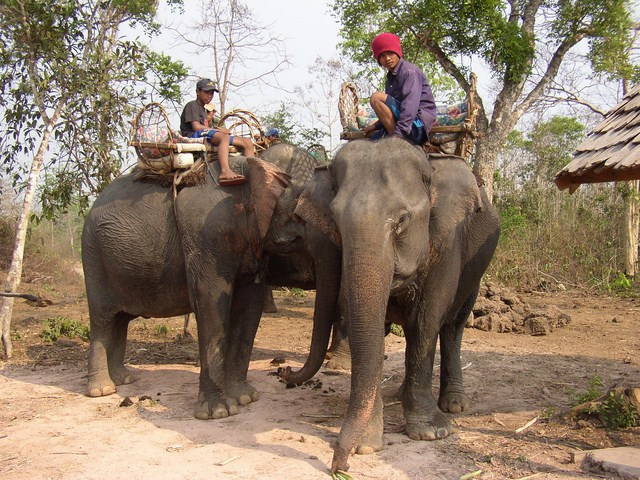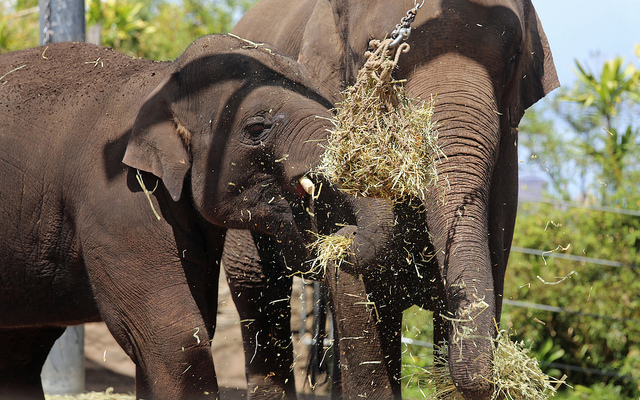
More than half of Thailand’s elephant population are held in captivity, where they are often used for the sole purpose of human entertainment. Elephant treks are some of the biggest tourist attractions in Asia, with many placing the experience at the top of their holiday wish list. Throughout Asia, elephants can be seen performing grueling tricks, painting pictures and giving rides – purely for entertainment

However, while interacting with an elephant may appear to be an exciting and memorable experience, the industry hides a dark and disturbing secret. Before they are able to perform, the elephant’s mind, body and spirit are first broken through a process called the phajaan, or ‘The Crush.’ The process, which is used to tame both captured and captive bred baby elephants, is used as a means to train the beasts to follow human orders.
As part of this ancient technique, the calves are separated from their mothers and entrapped in a small confined area, where they are tied down, starved, dehydrated and beaten repeatedly. Once broken, the elephants spend their dramatically shortened lives performing for tourists day in and day out, receiving further beatings if they don’t perform adequately.

Research has shown that these highly intelligent animals develop strong family ties, show empathy and are one of the few species that are self-aware. As a result, the torturous phajaan process often leaves these animals with not only physical wounds, but deeply embedded mental ones, as well.
In the majority of cases, there is no other way to sustainably house these elephants. In the past, elephants were used in the logging industry, however, as the forests depleted, so did the industry. Unemployed elephant owners created the beginnings of the elephant tourism industry as an alternative income.
Fortunately, a number of people are looking to build a permanent solution to the elephant tourism issue, and finally gives these spectacular animals the peaceful and joyful lives they deserve. Among these individuals is Sangduen Chailert, co-founder of Elephant Nature Park in Chiang Mai, Thailand. Chailert, who commonly goes by the name ‘Lek’, has rescued 200 distressed elephants in Thailand and neighboring countries since the park’s establishment in 1996.
“We have to first thing, heal them. We have to heal them with love,” Chailert explained. “We have to let nature rehab them. We have to make them feel that this is a safe place for them. Trust is the first thing that we have to go and do.”
In addition to providing a sanctuary and rescue center for elephants, the park also aims to maintain the cultural integrity of the local community, providing employment opportunities and purchasing agricultural products locally. In addition, the Elephant Nature Park is also working to restore the rainforest by planting 25 acres of the mountainside every year for the first 5 years.
To accomplish these goals, the park welcomes visitors and volunteers to observe and care for these animals. At the park, visitors are taken around the park, where they are told the stories of the elephants that have been rescued from the tourism industry. Chailert believes the solution to elephant tourism lies within education, she explains in a video published by Circa News.
“If we [don’t] change our attitude from this time, we can’t expect the next generation to learn and to stay peaceful with other beings in this planet,” said Chailert.
Image: Flickr, robin bos (CC BY 2.0)
This article (Elephant Tourism: Heartbreaking Video Reveals the Reality of the Popular Tourist Attraction) is a free and open source. You have permission to republish this article under a Creative Commons license with attribution to the author and AnonHQ.com.
Supporting Anonymous’ Independent & Investigative News is important to us. Please, follow us on Twitter: Follow @AnonymousNewsHQ




